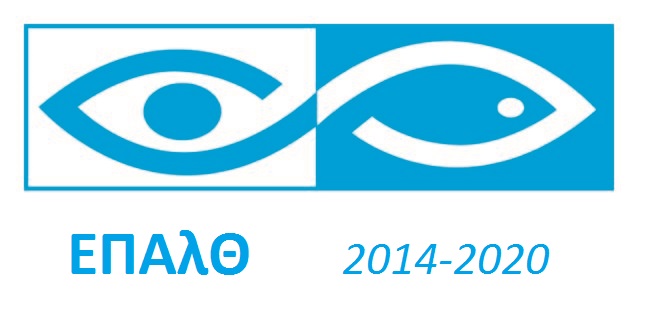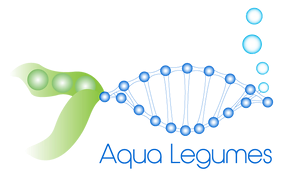AquaLegumes
Research Directions:
Fish nutrition and feeding
Fish health
Fish quality and safety
Description:
 Ensuring food adequacy globally remains one of the biggest challenges and aquaculture will be contributing to food security. Greece has the ideal environmental for Aquaculture, a production activity that today is an important sector of livestock production. The expansion of aquaculture production requires the growth of aquafeed production. The challenge of the industry is to identify sustainable alternatives to fishmeal on which present aquafeeds are largely based. The utilization of plant feedstuffs is an essential requirement for future development of aquaculture. Promising candidate plant ingredients are the forage legumes. Legume proteins are of high quantity and have a balanced amino acid profile. The use of locally available legumes, could directly contribute to the sustainability of fish farming in Greece. Furthermore, such cultivation could help unexploited areas of Greece to develop through agricultural production. Legumes contain, however, several endogenous antinutritional factors and Biotechnology can play a significant role in improving the nutritional value of legumes by using modern processes. These include fermentation and use of exogenous enzymes to enhance feed utilization. The exploitation of organisms during fermentation processes represents the first pillar of the proposed research and it is an innovative approach towards the improvement of legumes. The second pillar focuses on the exploitation of biotechnological methods, such as the use of exogenous enzymes that will be modified and optimised for the nutritional upgrade of legumes as feed ingredients in European sea bass rations. The overall objective of this work is to exploit, optimize and test modern biotechnological methods to improve the nutritional quality of forage legumes, cultured in Greece, as components in diets for sea bass.
Ensuring food adequacy globally remains one of the biggest challenges and aquaculture will be contributing to food security. Greece has the ideal environmental for Aquaculture, a production activity that today is an important sector of livestock production. The expansion of aquaculture production requires the growth of aquafeed production. The challenge of the industry is to identify sustainable alternatives to fishmeal on which present aquafeeds are largely based. The utilization of plant feedstuffs is an essential requirement for future development of aquaculture. Promising candidate plant ingredients are the forage legumes. Legume proteins are of high quantity and have a balanced amino acid profile. The use of locally available legumes, could directly contribute to the sustainability of fish farming in Greece. Furthermore, such cultivation could help unexploited areas of Greece to develop through agricultural production. Legumes contain, however, several endogenous antinutritional factors and Biotechnology can play a significant role in improving the nutritional value of legumes by using modern processes. These include fermentation and use of exogenous enzymes to enhance feed utilization. The exploitation of organisms during fermentation processes represents the first pillar of the proposed research and it is an innovative approach towards the improvement of legumes. The second pillar focuses on the exploitation of biotechnological methods, such as the use of exogenous enzymes that will be modified and optimised for the nutritional upgrade of legumes as feed ingredients in European sea bass rations. The overall objective of this work is to exploit, optimize and test modern biotechnological methods to improve the nutritional quality of forage legumes, cultured in Greece, as components in diets for sea bass.
Βελτίωση της διατροφικής αξίας ενδημικών ειδών κτηνοτροφικών οσπρίων μέσω σύγχρονων βιοτεχνολογικών διαδικασιών στην διατροφή μεσογειακών ειδών ιχθυοκαλλιέργειας
Αντικείμενο & Στόχοι
To πρόγραμμα στόχο έχει τη στήριξη της βιώσιμης βιομηχανίας υδατοκαλλιέργειας στη χώρα μας δίνοντας τη δυνατότητα στις εταιρείες που παράγουν ιχθυοτροφές να χρησιμοποιούν υψηλής διατροφικής αξίας εγχώριες πρώτες ύλες καθώς και τη στήριξη της αειφόρου γεωργίας κτηνοτροφικών οσπρίων (όπως φασόλια, ρεβίθια, μπιζέλι, λούπινο), που χρησιμοποιούνται ήδη από πρωτοπόρους αγρότες και κτηνοτρόφους σε διάφορες περιοχές της χώρας.
1. Αντικείμενο του προγράμματος κατά προτεραιότητα αποτελεί τη στήριξη της βιώσιμης βιομηχανίας υδατοκαλλιέργειας στη χώρα μας, και κατ’ επέκταση στη Μεσογειακή θαλασσοκαλλιέργεια.
Τα αποτελέσματα του προτεινόμενου έργου αναμένεται να δώσουν τη δυνατότητα στις εταιρείες που παράγουν ιχθυοτροφές να χρησιμοποιούν υψηλής διατροφικής αξίας εγχώριες πρώτες ύλες τις οποίες θα προμηθεύονται σε πολύ ανταγωνιστικές τιμές και μειωμένο κόστος μεταφοράς.
Το κόστος διατροφής στα είδη που εκτρέφονται στις Ελληνικές θάλασσες κυμαίνεται από 50-70% του συνολικού κόστους παραγωγής. Συνολικά ο κλάδος ξοδεύει περίπου 300.000.000 ευρώ/έτος σε ιχθυοτροφές και ως εκ τούτου η μείωση του κόστους και η διαθεσιμότητα πρώτων υλών που παράγονται τοπικά θα επιφέρει πολύ μεγάλη οικονομική ανακούφιση.
Οι εταιρείες παραγωγής ιχθυοτροφών θα γίνουν πιο ανταγωνιστικές και θα μειώσουν τις τιμές πώλησης των προϊόντων τους, χωρίς να μειώσουν τη κερδοφορία τους. Παράλληλα οι εταιρείες ιχθυοκαλλιεργειών θα καταστούν πιο βιώσιμες.
Αυτή η μείωση τιμών στα ιχθυάλευρα, αναμένεται να μειώσει και την τιμή πώλησης των ψαριών στην αγορά, με διττό κέρδος: (α) η ελληνική θαλασσοκαλλιέργεια θα έχει ανταγωνιστικό πλεονέκτημα σε σχέση με άλλες αγορές, λόγω χαμηλότερου κόστους παραγωγής, και (β) το τελικό προϊόν θα γίνει ακόμα πιο προσιτό στον καταναλωτή.
2. Αντικείμενο του προγράμματος κατά δεύτερο λόγο αποτελεί τη στήριξη της γεωργίας. Ένα σημαντικό βήμα προς της αειφόρο γεωργία είναι οι κτηνοτροφικές καλλιέργειες (όπως φασόλια, ρεβίθια, μπιζέλι, λούπινο), που χρησιμοποιούνται ήδη από πρωτοπόρους αγρότες και κτηνοτρόφους σε διάφορες περιοχές της χώρας. Αυτές οι καλλιέργειες έχουν περιβαλλοντικά, κοινωνικά και οικονομικά οφέλη για τους ίδιους τους παραγωγούς, τις τοπικές οικονομίες αλλά και για ολόκληρη τη χώρα που χρειάζεται επείγουσα τόνωση και αναδιάρθρωση στον γεωργικό τομέα για αυτάρκεια και απεξάρτηση από τις εισαγωγές ζωοτροφών.
3. Η παρούσα έρευνα θα επηρεάσει θετικά τις παραγωγικές δραστηριότητες της υδατοκαλλιέργειας και της γεωργίας τόσο σε οικονομικό όσο και κοινωνικό τρόπο, αντικαθιστώντας τις ακριβές και εισαγόμενες πρώτες ύλες, όπως η σόγια και η γλουτένη στις ιχθυοτροφές, με τη χρήση φθηνότερων μη συμβατικών και θρεπτικών συστατικών όπως τα κτηνοτροφικά όσπρια.
Ο συνδυασμός των πειραμάτων διατροφής και της μεταβολομικής ανάλυσης αποτελεί μία καινοτομία της ερευνητικής πρότασης, η οποία θα προσφέρει νέες γνώσεις για τις επιδράσεις των ιχθυοτροφών και των θρεπτικών ουσιών στους ιχθύες και να χρησιμοποιηθεί ως ένα εργαλείο ρουτίνας στη σχετική έρευνα επιταχύνοντας την έρευνα και ανάπτυξη διαιτητικών προγραμμάτων με προφανή πλεονεκτήματα για το τομέα της ιχθυοκαλλιέργειας της χώρας μας.






